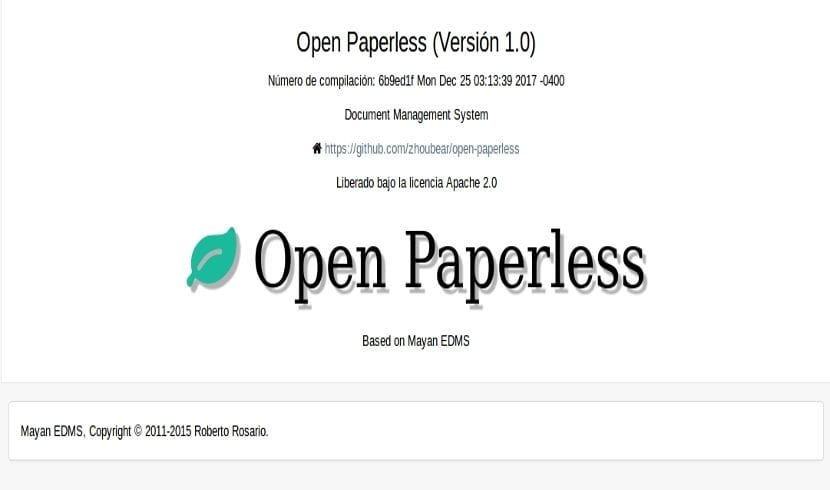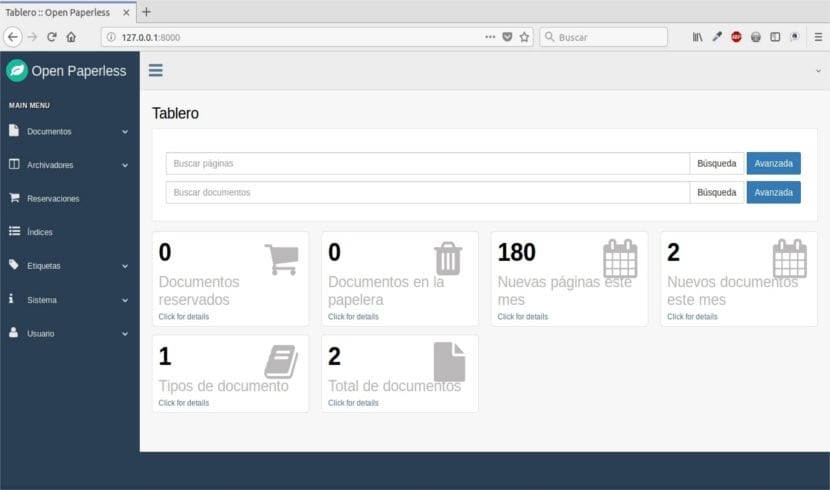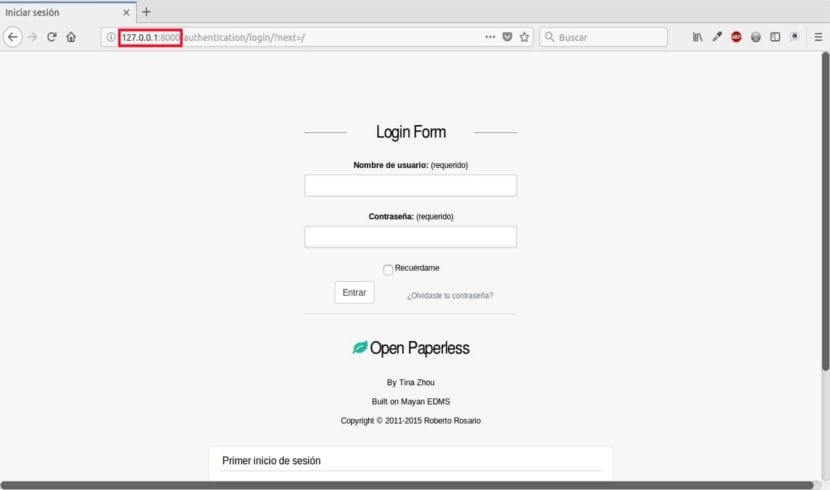
In the next article we are going to take a look at Open Paperless. Today the document management systems They are excellent tools that help us to properly manage our documents. There are various open source document management systems. From what I've read, perhaps the most popular is Maya EDMS. It is a tool with a large number of features and capabilities, but the average user is probably too big for us. For these users they have created the tool called Open Paperless. This specifically focuses on the main needs of the common user when managing their documents.
This tool provides a robust platform for fast, smart and high-quality scanning. In the same way, it offers the possibility of archive, modify and view documents in a friendly way, with the possibility of saving the information both in the cloud and on our local computer. It is logical to think that Open Paperless is a light version of Mayan EDMS.
General characteristics of Open paperless

As I said, this is a open source document management system based on Mayan EDMS. This takes the source code of Mayan EDMS that receives modifications on the interface and user experience. This is to reduce complexity and make this program more suitable for home users.
This tool is a light version of Mayan EDMS that allows us to scan, create, manage and archive documents in various formats. The documents are stored with the attributes and metadata that we want. In the same way, they can be managed by the different users, roles and groups that Open paperless offers us.
Open paperless is multilanguage, with a wide variety of characteristics, including a advanced web interface with user and password management. It also offers us excellent applications that allow adequate storage, intelligent document analysis and an efficient search engine. It also offers us support to convert documents, review correspondence, sign documents, edit and add metadata, OCR management, document personalization and much more.
The tool has a avazanda REST API inherited from Mayan EDMS which is well documented. It will allow us to integrate with third-party services, in the same way it keeps a record of errors and changes generated in the documents. It also includes an advanced task manager that can be run manually or scheduled to run automatically.
Either in the cloud or on our local computer, your storage policies and the use of labels will allow us an adequate segmentation that will make management much faster. His integrated display it will also allow us to preview any document without much effort.
Hardware requirements
This program requires our equipment to meet certain hardware requirements for proper operation. According the GitHub page of the project, it is necessary that our team has at least the following requirements:
- 2 Gigabytes of RAM (1 Gigabyte if OCR is off).
- Multi-core CPU (64bit, faster than 1Ghz).
- Ubuntu 16.10 or higher.
Install Open paperless on Ubuntu 16.04 or higher
The installation of this tool on our computer is quite simple. I have tested it on Debian and Ubuntu based distros. We will only have to execute the following commands in a terminal (Ctrl + Alt + T):
sudo apt install git-core -y sudo git clone https://github.com/zhoubear/open-paperless.git cd open-paperless sudo ./setup.sh sudo ./run.sh
Once the installation is finished we will only have to go to our localhost (or the ip of our server). We will have to add port 8000 to the URL.

Then we can log in with the username and password that we will find at the bottom of the index page of the first start. We can change this information later.
In general, this tool is very easy to use. It will allow us to digitize all our documents in a fast, efficient way and save them in the storage medium that we want.